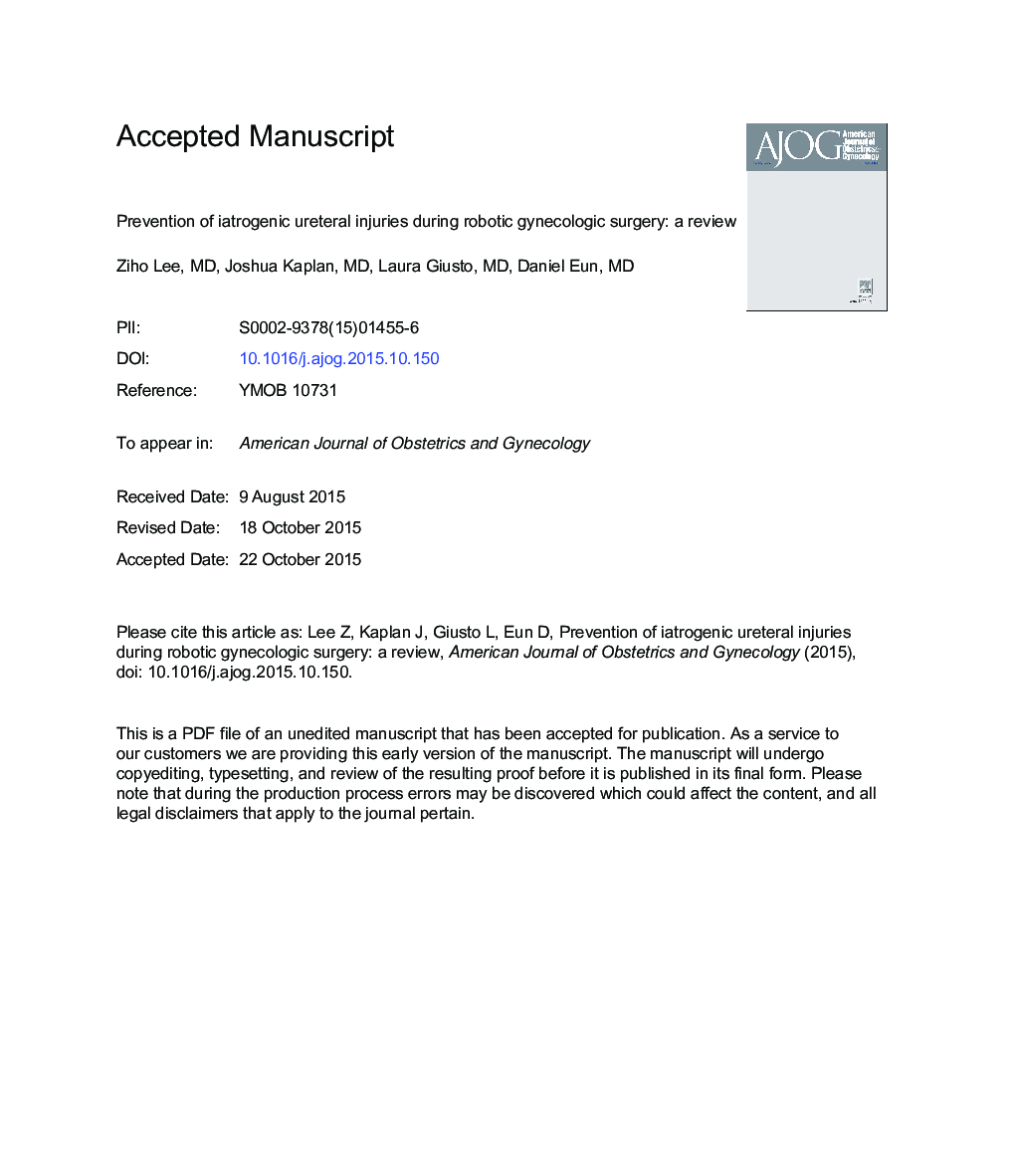| Article ID | Journal | Published Year | Pages | File Type |
|---|---|---|---|---|
| 6143999 | American Journal of Obstetrics and Gynecology | 2016 | 23 Pages |
Abstract
Iatrogenic ureteral injuries, more than half of which occur during gynecologic surgery, may have devastating consequences for both patients and physicians. Gynecologists have employed various techniques such as cystoscopy, ureteral stents, and lighted ureteral stents to prevent ureteral injuries. The emergence and increasing prevalence of robotic surgery necessitates that we not only reevaluate the utility of these techniques, but also develop new ones specific for the robotic modality. In the robotic setting, the surgeon lacks tactile feedback and must rely primarily on visual cues. The use of intraureteral indocyanine green and subsequent visualization under near-infrared fluorescence appears to be a promising technique to primarily and secondarily prevent ureteral injuries during robotic gynecologic surgery.
Related Topics
Health Sciences
Medicine and Dentistry
Medicine and Dentistry (General)
Authors
Ziho MD, Joshua MD, Laura MD, Daniel MD,
